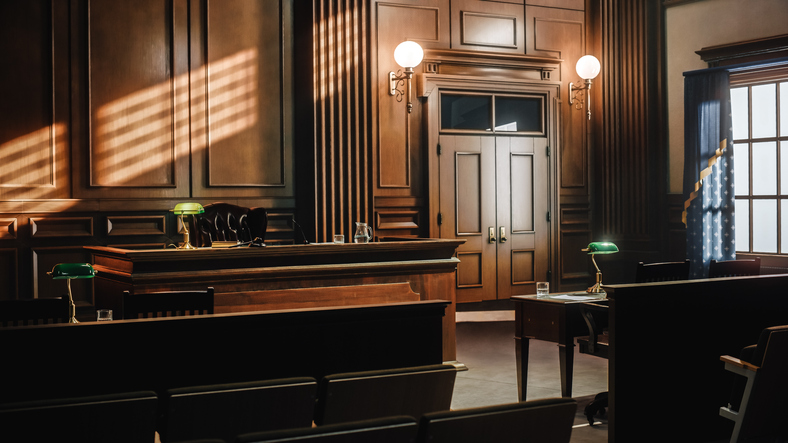If a person passes away without a will, their assets are distributed by probate court according to Florida’s intestate succession laws. However, having a will does not mean you avoid probate court.
Florida probate court governs the disposition of all descendants’ (the person who passed away) estates. Many assets will pass directly to designated beneficiaries without going through probate. These include life insurance, retirement accounts, and payable-on-death bank accounts.
If you are looking to contest a will in a Florida probate court, you only have a limited time to launch your challenge. Typically, you can contest a will until the court closes the case through the discharge of the personal representative.
However, there is one major exception to the rule. If you stand to personally benefit from the will and have received a formal notice, you will only have 90 days to start a contest to the will. This period begins once you receive formal notice.
How Do I Contest Probate in Florida?
In Florida, you cannot contest a will before the person passes away. However, you can begin contesting probate before the court issues Letters of Administration naming the personal representative. If you are an interested party who knows you will be challenging a will, you can file a caveat in probate once the person passes away.
More commonly, people contest wills after the issuance of Letters of Administration. Under Florida law, the personal representative in a probate case must promptly serve a copy of the formal notice on interested parties.
These interested parties include:
- A surviving spouse.
- Any beneficiaries named in the will.
- The trustee of the descendant’s revocable trust.
- Anyone else who may have a right to exempt property.
Once these individuals have received a formal notice, the 90-day clock starts.
Crucially, if you receive a formal notice as an interested party and fail to file a challenge within three months, any claims you have against the will are forever barred.
What Grounds Do You Need To Contest a Will in Florida?
There are minimum requirements that all wills must meet to be enforceable and valid. In Florida, you can contest a will for the following grounds:
Will Does Not Meet Legal Requirements
A valid Florida will must be written and signed by someone over the age of 18. Additionally, two disinterested witnesses must also confirm they saw the signing.
Lack of Capacity
To sign any legal contract, including a will, you need to be of sound mind. Lacking the mental capacity to execute a will can be grounds for challenging the enforceability of a will.
Will Signed Under Duress
Though difficult to prove, if someone signed a will in fear for their safety or that of a loved one or family member, interested heirs might be able to challenge the will. This can occur if someone like a caregiver suddenly becomes a primary beneficiary.
Undue Influence
Another ground for contesting a will is undue influence. Unlike duress, the testator need not have feared for their safety. Instead, this theory maintains that someone who is a significant beneficiary wrongfully convinced the testator to leave them an undue portion of their estate.
Fraud
If someone convinced the will’s testator to add or remove something in the document through fraud, other beneficiaries or interested parties could challenge the validity.
How Long Does It Take To Contest a Will in Florida?
Unlike many other legal actions, contesting a will can be a speedy process. This is especially true because of the tight deadlines surrounding the formal notice.
The 90-day challenge deadline means almost all contests begin quickly. And Florida does not allow will provisions that exclude anyone who challenges the will to be removed as a beneficiary. So, there is typically little downside to launching a will challenge, except for attorney’s fees and court costs.
Some contests last for a significant period of time. This is especially true in challenges to the testator’s capacity. The probate court will likely need to hear testimony from expert medical witnesses regarding the testator’s state at the time of the will’s execution.
These types of probate actions can begin to take significant amounts of time. Will contests are always highly emotional cases that can be very taxing on the individuals involved. But if you have a likely claim that your loved one’s will was improperly executed, legal remedies exist to help make you whole. You should discuss your situation with a will contest lawyer as soon as possible to make sure you take the best course of action and don’t miss any deadlines.
Read More
A Guide to Probate Problems Between Siblings
What Is Homestead Protection in Probate Law?
What Is an Affidavit of Heirs?
What Is a Petition to Sell Real Property?
About RMO Lawyers, LLP
RMO LLP provides personal and efficient inheritance dispute services to individual and institutional clients. The firm’s attorneys focus on probate litigation involving contested trust, estate, probate, and conservatorship matters. Serving California and Texas, with offices in Los Angeles, Pasadena, Orange County, San Diego, Fresno, the Bay Area, Dallas, and Houston. For more information, please visit https://rmolawyers.com/.



